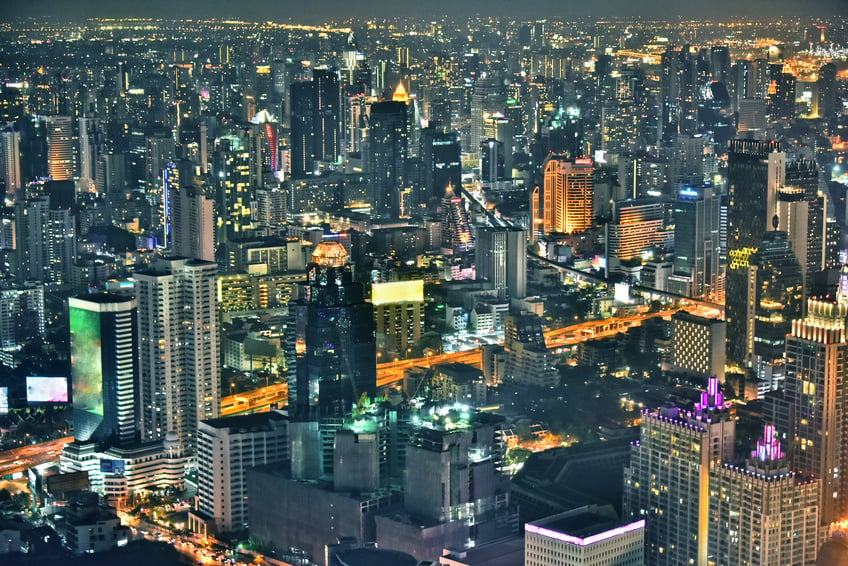In brief
The Department of Industrial Works (DIW) recently introduced the Draft Industrial Waste Management Act (DIWMA), which remained open for public hearing until 1 April 2025. Similar to some other draft waste laws, namely the Draft Sustainable Packaging Management Act and the Draft Waste Electrical and Electronic Equipment Management Act (“Draft WEEE Act“), the DIWMA adopts the Extended Producer Responsibility (EPR) principle, obligating operators of industrial establishments to be responsible for the industrial waste they generate until it is fully treated or disposed of. These responsibilities include the collection and transportation of the waste and ensuring that only entities licensed by the DIW handle the disposal of the waste.
Key aspects of the DIWMA are summarized below.
In more detail
What is covered?
The definition of industrial waste under the DIWMA is quite broad, covering almost all types of waste generated by the industrial sector, with the exception of infectious waste (as defined by public health law) and radioactive waste (as defined by nuclear energy for peace law). Industrial waste can include all kinds of waste generated from industrial establishments, whether within or outside Thailand, and also includes electronic waste and vehicle scraps. The DIWMA also broadly defines “generator” to cover generators, manufacturers, assemblers, importers, owners, and brand or trademark owners. The obligations to collect, transport, and dispose of waste under the DIWMA therefore extend to the generators of electronic equipment and vehicles.
Specific provisions for electronic waste and vehicle scraps
In order to regulate the disposal, disassembly, and treatment of electronic waste and vehicle scraps, the DIWMA sets out specific obligations in relation to the collection, transportation and disposal of electronic waste, and requires that the generator of vehicle scraps be responsible for the vehicle scraps until the treatment of these vehicles is complete. The DIWMA also prescribes penalties for violations and non-compliance.
Hazardous vs. Non-Hazardous Waste
The DIWMA distinguishes between hazardous and non-hazardous industrial waste. For the former, stricter rules apply: disposers, collectors and transporters must obtain a certain license from the Director-General of the DIW or an authorized representative to dispose of such hazardous waste. Similar requirements apply to disposers and collectors of electronic waste, as well as for disposers of vehicle scraps.
Operating license of the existing waste management factories
The transitory provisions in the DIWMA allow the factory licenses of existing waste managing factories (i.e., factory types 101, 105 and 106 under the Factory Act, B.E. 2535 (1992)) to be deemed industrial waste disposal operating licenses under the DIWMA for a certain period.
Sustainable Industry Fund
A sustainable industry fund will be established under the Ministry of Industry. The fund will be used for several purposes, including payments to prevent, protect against, and remedy environmental and public health impacts caused by the mismanagement of industrial waste, as well as for the development, promotion, and enhancement of the industrial sector in relation to waste management. Under the DIWMA, disposers, collectors, and transporters of industrial waste will be required to place a security deposit for the initial compensation of damages that may arise from their operations. This security will form part of the fund.
The DIWMA vs the Draft WEEE Act
Certain provisions and concepts under the DIWMA overlap with those in the Draft WEEE Act, which was proposed by the Pollution Control Department (PCD) and revised in August 2024. Both require manufacturers of electrical and electronic products to be responsible for the collection of waste generated by these products. However, the treatment of such waste differs under both laws. For example, under the DIMWA, manufacturers must send the waste to disposers or collection facilities, whereas under the Draft WEEE Act, manufacturers are required to create a waste management plan and are responsible for managing the electronic waste themselves, unless the obligations are entrusted to a product waste management organization registered with the PCD.
It remains to be seen which of these draft laws will be eventually adopted, as there are more steps in the legislative process, and the overlapping obligations might be merged along the way. In any case, once adopted, these draft laws will create new legal obligations requiring manufacturers and factory operators to oversee the disposal of waste generated. Therefore, relevant business operators should closely monitor the development of these legislations to be prepared when either draft comes into effect.
* * * * *
The following have contributed to this legal update:
- Dhiranantha Rithmanee, Sustainability Specialist
- Muanjit Chamsilpa, Sustainability Specialist
- Chanata Kengradomying Chaivaivid, Sustainability Knowledge Management Lead







